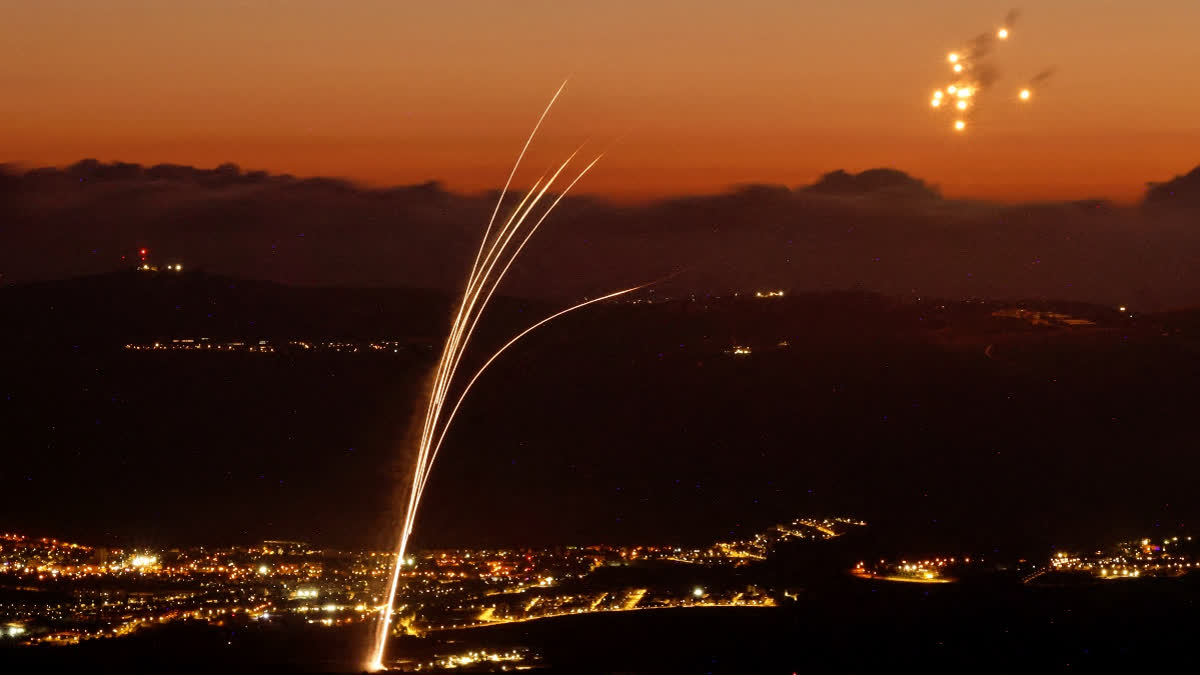Jerusalem:Israel launched a series of intense airstrikes in southern Lebanon early Sunday in what it said was a pre-emptive strike against the Hezbollah militant group, threatening to trigger a broader region-wide war that could torpedo efforts to forge a cease-fire in Gaza.
Around the same time, Hezbollah also announced large-scale rocket and drone launches towards Israel in an "initial response" to a top commander's killing. The Iranian-backed group had been promising to retaliate for Israel's assassination of a top commander late last month. Air raid sirens were reported throughout northern Israel, and Israel's Ben-Gurion international airport began diverting incoming flights and delaying takeoffs.
Israeli Defence Minister Yoav Gallant announced a 48-hour nationwide state of emergency from 06:00 am (0300 GMT) Sunday after the Israeli military launched strikes in Lebanon. "The declaration on the state of emergency enables the IDF (Israeli military) to issue instructions to the citizens of Israel, including limiting gatherings and closing sites where it may be relevant," Gallant said, in a statement issued by his office.
Soon afterwards, Hezbollah also announced it had launched an attack on Israel with a “large number of drones” as an initial response to the killing of Fouad Shukur, a top commander with the group, in a strike in Beirut’s southern suburbs last month. Hezbollah said it launched 'more than 320' Katyusha rockets at Israel, AFP reported.
The Israeli military in a statement later in the day said its fighter jets attacked thousands of Hezbollah rocket launchers in south Lebanon that were aimed at northern and central Israel.
"Approximately 100 IAF fighter jets ... struck and destroyed thousands of Hezbollah rocket launcher barrels that were located and embedded in southern Lebanon," the military said in a statement. "Most of these launchers were aimed toward northern Israel and some were aimed toward central Israel."
Hezbollah in turn "fired hundreds of rockets and UAVs towards northern Israel", most of them after Israel launched its attack, Israeli military spokesperson Lieutenant-Colonel Nadav Shoshani told reporters.
The fire from Hezbollah was "part of a larger attack that was planned and we were able to thwart a big part of it this morning", Shoshani said, while declining to specify what Hezbollah had targeted. "We're still in a situation assessment of the aftermath of the attack... there is still some fire happening," Shoshani said. "But I can tell you there was a little damage... very little damage."
Shoshani said Israel's partners including the United States did not take part in Sunday's attack on Hezbollah.
The attack came as Egypt hosts a new round of talks aimed at ending Israel’s war against Hamas, now in its 11th month. Hezbollah has said it will halt the fighting if there is a cease-fire.
Last week, Israel’s defense minister said he was moving more troops toward the Lebanese border in anticipation of possible fighting with the Iranian-backed group. Israel’s military spokesman, Rear Adm. Daniel Hagari, said early Sunday: ”In a self-defense act to remove these threats, the (Israeli military) is striking terror targets in Lebanon, from which Hezbollah was planning to launch their attacks on Israeli civilians.”
